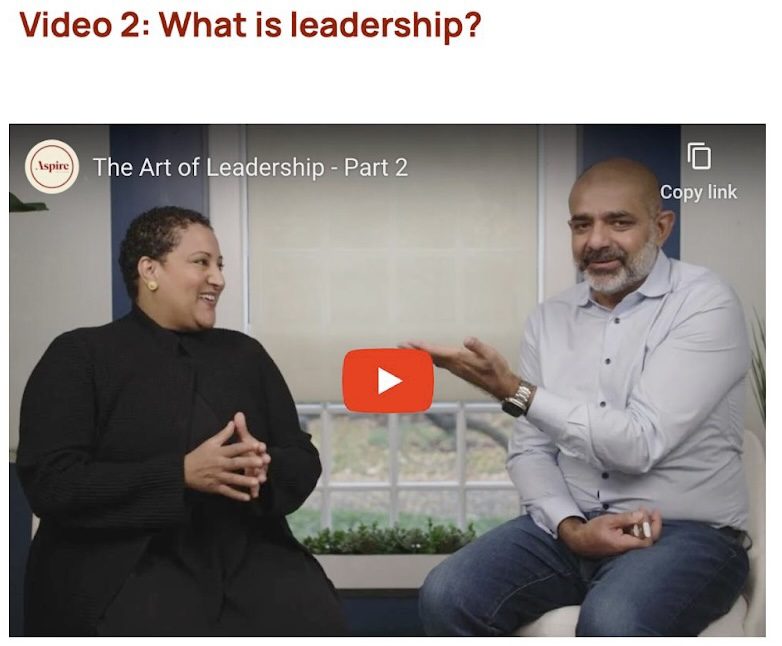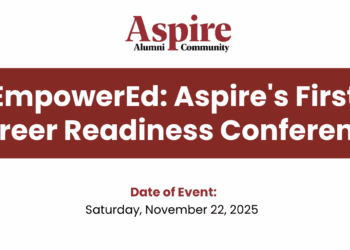People often misunderstand what leadership and leadership development really means. Many think you must hold a specific title or that only extroverts can lead. These misconceptions span cultures and age groups and can be particularly limiting for college students and recent graduates building their careers.
Leadership isn’t about fitting a specific mold. It’s about influence, empowerment, and creating positive change. Many people already show leadership qualities through resilience, problem-solving skills, and community commitment. Yet common myths about leadership development prevent talented individuals from recognizing and developing their potential.
Let’s explore and debunk five persistent leadership myths. You’ll discover that you may already have leadership capabilities or can start building leadership skills today.
1. You Don’t Need a Title to Lead
You don’t need to be a manager, team captain, or hold any official position to demonstrate leadership. Leadership is about influence—your ability to guide, support, and inspire others toward common goals. Harvard Business School professor Tsedal Neeley explains that leadership is “a set of behaviors and effects.” A leader influences others and enables coordinated action. Neeley explores leadership in greater depth in module 2 of the Aspire Leaders Program’s Aspire Horizons course.

You’re likely already demonstrating leadership—through how you collaborate, solve problems, or support others—even if you don’t recognize it. You can also demonstrate leadership through everyday actions like asking thoughtful questions in meetings, supporting teammates, or taking initiative to solve problems.
2. You Don’t Need to Be Loud to Lead
The most effective leaders are often thoughtful listeners. They lead through empathy, careful observation, and strategic thinking. Leadership isn’t about being the loudest voice in the room. It’s about having influence and bringing teams together to achieve common goals.
Many people excel at this quieter style of leadership, especially those who’ve learned to observe and adapt in new environments. Your listening skills, emotional intelligence, and ability to connect with others are valuable leadership qualities.
3. Leadership Skills Are Learnable
Every successful leader developed their skills over time. The idea that leadership is an innate trait can discourage people who haven’t seen leadership modeled in traditional corporate or academic settings.
The truth is clear: you can learn leadership skills. Communication, problem-solving, team building, and strategic thinking all develop through practice, mentorship, and leadership development opportunities. Your journey of navigating new challenges—whether in college, your career, or personal growth—has already built resilience, adaptability, and resourcefulness. These are core leadership qualities that you can build upon. Start by identifying one leadership skill you’d like to develop, such as public speaking, conflict resolution, or project management, then find one concrete way to practice it this month.
4. Great Leaders Empower Others
Leadership isn’t about giving orders or having all the answers. Effective leaders listen, observe, ask questions, and create environments where others can contribute their best ideas and efforts. They focus on empowering their teams rather than controlling them.

This collaborative approach comes naturally to people who understand the importance of community support and collective problem-solving. This applies whether you’re navigating college, building professional networks, or overcoming personal challenges. You can use your understanding of overcoming challenges through collaboration to help others succeed. In your next team project or group situation, focus on asking “How can I support you?” and “What resources do you need to succeed?” rather than assigning tasks.
5. Authentic Leadership Builds Trust
Trying to appear perfect is unrealistic and counterproductive. You build trust through honesty, transparency, and showing continuous learning and growth. People connect with leaders who acknowledge their mistakes, learn from feedback, and demonstrate genuine commitment to improvement.

Your authentic journey of navigating new challenges can inspire and connect with others facing similar struggles. Your vulnerability and growth mindset are leadership assets, regardless of your background or current stage of life. The next time you make a mistake in a leadership situation, practice acknowledging it openly, sharing what you learned, and demonstrating how you’ll apply that learning going forward.
Accelerate Your Leadership Journey Today
Leadership isn’t about fitting into a predetermined mold—it’s about leveraging your unique strengths, experiences, and perspectives to create positive impact. Whether you’re a college student, recent graduate, or someone building your career, you bring valuable qualities to leadership: resilience, adaptability, empathy, and a deep understanding of overcoming obstacles.
You demonstrate leadership in many ways. You might lead a study group, organize workplace initiatives, mentor peers, or advocate for resources in your community. The key is recognizing these experiences as leadership development and continuing to build on them.
Want to continue developing your leadership skills? The Aspire Leaders Program connects first-generation college students, recent graduates, and those from limited-income backgrounds worldwide with mentorship, professional development opportunities, and a global network of changemakers. Learn more and apply today—all for free!




